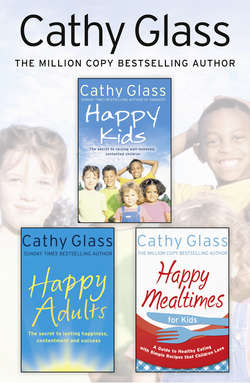Читать книгу Cathy Glass 3-Book Self-Help Collection - Cathy Glass, Cathy Glass - Страница 58
World events
ОглавлениеWith world events now so accessible and immediate – coming into our homes through live television, the internet, radio and newspapers – it is as well to remember the impact that seeing a disaster has on us, and even more so on our children. At one time, before live coverage of world events, the most shocking pictures we saw were stills of starving children in Africa, usually shown to raise money for famine relief, which were shocking enough. Now, through satellite television, we witness disasters across the world as they unfold, with the effect that we are closer, more involved. They have greater impact and stress on us. Very little appears to be censored, and what isn’t captured by the film crew is supplemented by witnesses’ camera footage taken on mobile phones. Not only do we often see the disaster actually happening but the cameras are there, for days on end, working with rescue crews as they dig bodies out of rubble, examine wreckage of crashed aeroplanes or mangled cars; or with journalists as they talk to survivors of terrorist attacks, or grieving parents of missing or dead children. Much of this is everyday news and children watch the news.
The impact these disasters have on children is greater than on adults. Children haven’t yet developed the desensitisation that adults have in order to protect them and allow them to cope with this continuous onslaught on our emotions. After the events of 9/11 and the Boxing Day tsunami, counselling lines were set up for those who had been affected by what they had seen on television. The lines were very busy and many of the calls were from minors.
While it is important our children are aware of world events, what they see needs to be age appropriate, and they shouldn’t have to witness more than their young minds can cope with. Don’t hesitate to switch off the news (even if it’s the early evening news) if you feel it is too upsetting and beyond your child’s ability to cope.
One boy I fostered, who was ten at the time, became so unsettled by the Beslan school hostage siege (which he had seen on the five-thirty children’s news) that he didn’t want to go to school, feeling that a similar thing could happen there. It took a lot of talking and reassurance to convince him otherwise.
Your child will have questions about what they have seen on television. It is important you answer their questions age appropriately. Discuss what they have seen and put it in perspective, giving lots of reassurance. Tsunamis, earthquakes and volcanic eruptions don’t, fortunately, happen every day; security has been tightened to prevent terrorist attack; travelling by plane remains one of the safest forms of travel; and you and your partner are safe drivers, so your child needn’t be concerned about an accident. The world we live in can be a very sad and difficult one and children shouldn’t have to cope with more than they are able, or they will become anxious, miserable and angry by carrying the weight of world suffering.
